So you’re interested in becoming an electrician in California? Lucky for you, this comprehensive guide has everything you need to know! In this article, we will answer some of the most common questions people have about becoming an electrician. We will also provide helpful tips on how to get started in this exciting career. So whether you’re just starting out or are already well on your way, read on for all the information you need to become a successful electrician in California!
What Does Electrician Do

Electricians must be able to read and interpret blueprints and other technical diagrams, as well as follow safety regulations. Other responsibilities of electrician include:
Testing electrical systems
Besides installing, repairing and maintaining electrical systems, electricians are also responsible for testing these systems to ensure that they are working properly. This often involves using specialized equipment to test circuit breakers, outlets, and other components of the system.
Inspecting electrical systems
Regular inspections of electrical systems are important in order to identify potential problems before they become serious. During an inspection, an electrician will check for loose wires, damaged insulation, and other issues that could cause a system to malfunction.
Replacing fixtures and other components
As electrical systems age, certain components may need to be replaced. This is especially common with light fixtures and outlet covers. An electrician will know how to properly remove and replace these components without damaging the surrounding area. [1]
Requirements for Becoming a Legal Electrician in California
Now that you know what an electrician does, you might be wondering how you can become one in California. The first step is to meet the requirements for becoming a legal electrician in the state. Becoming an electrician typically requires completing an apprenticeship or training program. Some states require electricians to be licensed. California is one of them. And you absolutely must get a license if you want to legally work in California.
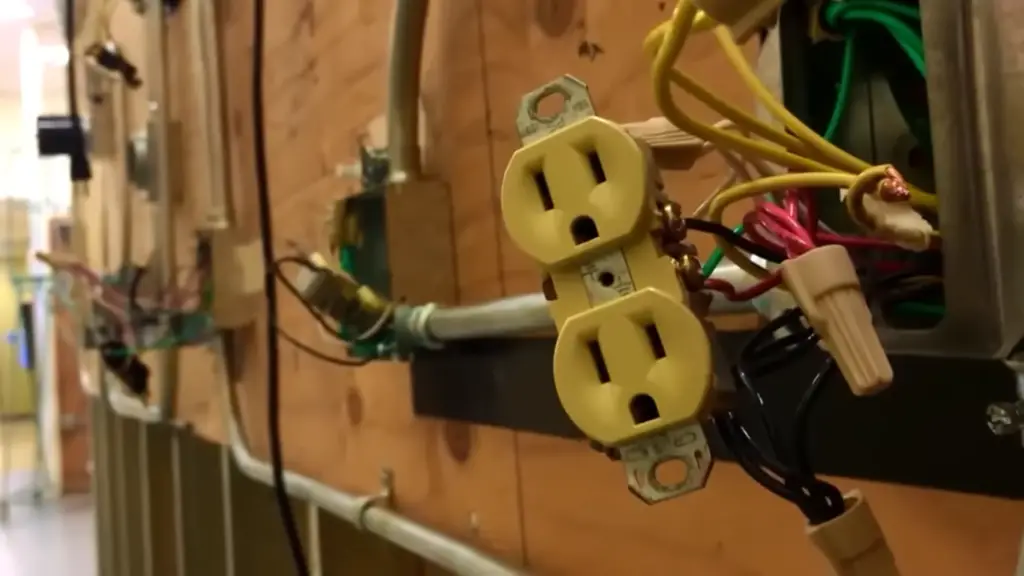
In this section, we will go over the detailed requirements that you need to meet in order to become an electrician in California.
You Must Be 20 Years of Age or Older
In order to become an electrician in California, you must be at least 20 years of age. There is no upper age limit, so even if you are retired from another career, you can still pursue a new one as an electrician. Apprenticeships typically allow people who are 18 years of age or older to participate so you can easily get started on your path to becoming an electrician even if you are not yet 20 years old.
You Must Have a High School Diploma or Equivalent
To become an electrician in California, you must have at least a high school diploma or equivalent. This means that you must have completed either a traditional high school education or passed the General Educational Development (GED) test. If you did not complete either of these things, you will not be able to become an electrician in California.
University degree, especially in electrification, while not required, is going to give you an advantage.
You must be physically strong and capable
Working as an electrician often requires lifting heavy objects, climbing tall ladders, and working in cramped spaces. It is important that you are physically strong and capable of performing these tasks before you start your training.
You must have some understanding of algebra
To be an electrician, you need to have a strong understanding of algebra. Algebra is the mathematics of equations and variables, which is what electricity is all about. You’ll use algebra to solve for the values of unknowns in electrical circuits. A good electrician should be able to understand and work with complex algebraic equations.
Interest in electronics is preferable
If you’re thinking about pursuing a career in this field, it’s important to have a strong interest in electronics. Not only will this make learning the necessary skills easier, but it will also give you a leg up on the competition when it comes time to find a job. Besides the sheer interest, good knowledge of electronic concepts will also be incredibly useful in your future career.

Your critical skills must be on-point
You could say that electricians are the backbone of many industries. They help to maintain and construct the buildings and machines that drive our economy and keep our homes running smoothly.
Because they play such a vital role, it’s important that electricians have a well-rounded skill set. In addition to being able to wire and rewire complex electrical systems, electricians must also be able to troubleshoot problems and make repairs quickly and efficiently. [1]
Types of Electrician Licenses
There are two types of licensure for electricians in California: general electrician and specialty electrician. General electrician licenses allow you to work on any type of electrical project, while specialty electrician licenses limit you to working on specific types of projects.
Here are some examples of licenses you might come across:
General Electrician
Electricians are trained to work with a variety of electrical components, including wiring, circuit breakers, outlets, and fixtures. Contrary to residential electricians–who are more focused on maintenance, repairs and installations in the home–a general electrician is equipped to work on a variety of projects, both big and small in residential, commercial and industrial settings.
This position also requires nearly twice as much experience as a residential electrician–a total of 8,000 hours or four years of experience working under a licensed electrician.
Apprentice electrician
An apprentice electrician is a person who is learning the trade of electricity under the direct supervision of a fully licensed electrician. As we already mentioned, in order to become an apprentice, you must be at least 18 years old and have a high school diploma or equivalent. You will also need to pass a basic aptitude test administered by the California Department of Industrial Relations. Once you gain the necessary experience, you will need to pass a journeyman electrician exam in order to become a licensed electrician. More on that one later
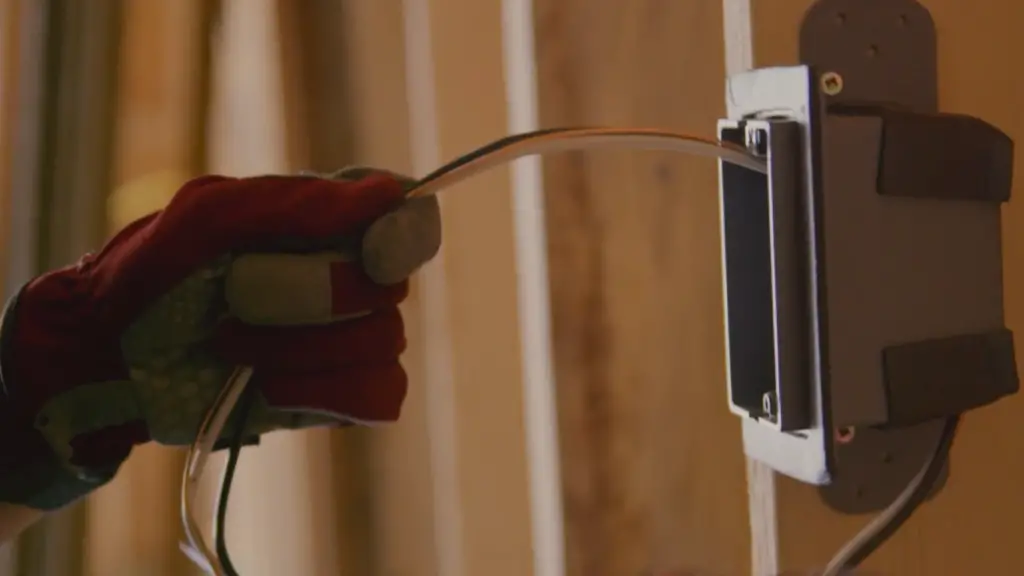
Residential electrician
Residential electricians are highly trained professionals who install, maintain and repair the electrical systems in our homes. They work with a variety of tools and equipment to safely and efficiently complete their tasks. In addition to their technical skills, residential electricians must also have strong customer service skills to deal with the various people they will encounter while on the job. To become a residential electrician, you will need to have at least 4,800 hours of experience working as an electrician. You will also need to have your certifications up to date.
Fire safety electrician
In California, a fire safety electrical technician is an individual who is responsible for the installation, inspection, repair and maintenance of fire alarm and sprinkler systems. Fire safety electrical technicians work in a variety of settings, but usually in commercial and industrial buildings. In some cases, they may also work in hospitals or other healthcare facilities.
Most fire safety electrical technicians are employed by private companies that specialize in fire protection. However, some firefighters and other first responders also perform these duties.
Voice data video technician
The title of voice data video technician is used interchangeably with a few other titles, including low voltage technician, voice and data cabling technician.
Non-residential lighting technician
A non-residential lighting technician is someone who installs, repairs, and maintains lighting and electrical systems in commercial and industrial buildings. This position requires only 2,000 hours of on-the-job training, compared to 4,000 hours for a residential electrician choice.
And the list goes on! Check with your local electrician union or licensing board to find out which licenses are required and are available in your area. [2], [3], [4]
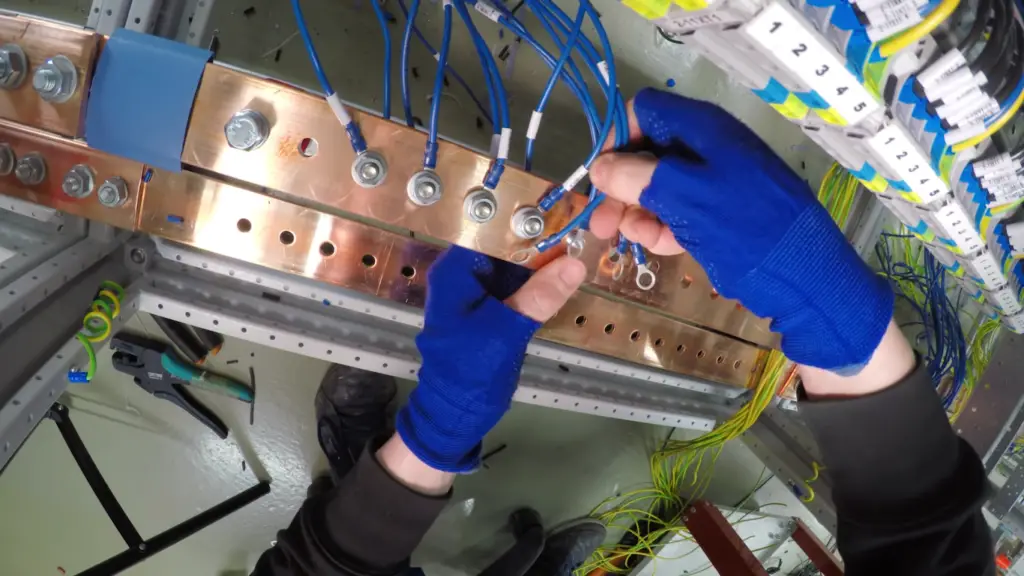
Steps to Get an Electrician License in California
As you can see, becoming an electrician in California is no small feat. However, what is the process for getting your electrician license in California? We have outlined the steps for you below!
Register as an electrical trainee
Working experience matters a lot when you want to apply for an electrician license in California. And as someone who considers a career in electrical work, you probably don’t have a lot of experience to put on your resume.
The first step is to register as an electrical trainee with the California Division of Labor Standards Enforcement. The DLSE will help place you with an employer who can provide the on-the-job training hours required to become a journeyman electrician.
Enroll in a state-approved union or program
The next step is to enroll in a state-approved union or electrician training program. There are many different unions and programs available, so it is important that you do your research to find the one that is the best fit for you. This is an important step as you will learn the basics of electrical work and begin to build up your experience.
Complete an approved apprenticeship program
Once you have ticked all the requirements boxes, the next step is to complete an approved apprenticeship program. An apprenticeship is a type of on-the-job training that allows you to work under the supervision of a licensed electrician while completing classroom instruction. A training program, on the other hand, is a more traditional educational approach that takes place in a classroom or online.
There are many different types of electrician apprenticeship and training programs available, so it is important to choose one that is right for you. These programs typically last four years and combine classroom instruction with on-the-job training. Many unions and trade organizations offer apprenticeships, as well as some businesses and technical schools.
Apprenticeship programs are sponsored by joint labor-management committees, employer associations, or individual employers. Registered apprenticeships must comply with California’s Division of Apprenticeship Standards (DAS).
Experience, as we said, matters. So, the more experience you have as an electrician apprentice, the better your chances of getting your master electrician license.
Take the Residential Electrician Licensing Exam
You will have to pass a lot of exams during your journey to becoming an electrician in California. The first one is the Residential Electrician Licensing Exam, which you will need to take once you have completed your apprenticeship program. This exam will test your knowledge of electrical work and safety procedures.

The Residential Electrician Licensing Exam is a comprehensive exam that covers all aspects of electrical installation and maintenance in a residential setting. You will need to pay both the application fee and the exam fee to take the exam so keep that in mind.
The most important requirement to pass the exam is to present a work history as an electrician. The work history must show a minimum of 4,800 hours worked. This is where your past experience as a trainee and apprentice will come in handy. You will also need to provide a copy of your high school diploma. Your exam provider will handle all the formalities, all you need to do is focus on studying and taking the exam.
Gain Residential Electrician Certification
Certifications, certifications and certifications! You are going to need some to get your electrician journey started in California. After you successfully complete the Residential Electrician Exam, you will get a Residential Electrician Certification.
One thing to keep in mind is that this certification must be renewed every three years. The renewal process is relatively simple and only requires that you submit a new application and fee.
Gain General Electrician Certificate
And another certification! This time you will need to gain your General Electrician Certificate. You can do this by passing the General Electrician Exam.
The examination in question is the General Electrician Exam. The General Electrician Exam is an open book exam that contains 100 questions. The time limit to complete the exam is four and a half hours. To be eligible to take part in the exam, you must:
- Have a high school diploma or equivalent
- Have completed an electrician training program
- Have at least 8,000 hours of experience working as an electrician
The General Electrician Exam is a more comprehensive exam than the Residential Electrician Exam and covers all aspects of electrical installation and maintenance, both in residential and commercial settings. There are plenty of study guides and practice tests available to help you prepare for the General Electrician Exam. Just do a quick search online and you’ll find plenty of resources.
Just like with most certifications, you will need to renew your General Electrician Certificate every three years. The renewal process is pretty simple and just requires you to submit a renewal application and fee to the California Contractors State License Board. [2], [3]
Choose Between Becoming an Independent Contractor or Work for Corpo
After you have your General Electrician Certificate, you will be able to work as an electrician in California. You can either become an independent contractor or get a job with a corporation.
If you decide to become an independent contractor, you will need to meet some extra requirements. In the state of California, an electrical contractor is defined as “any person or firm who engages in the business of installing, repairing, altering, extending, or connecting electrical wiring or devices for electrical energy in any building or structure.”
To put it simply, an electrical contractor is someone who offers their services to install or repair anything that uses electricity in a home or business. This includes but is not limited to outlets, lighting fixtures, breaker boxes, and so on. The requirements for obtaining a contractor’s license vary depending on the type of work you will be doing.
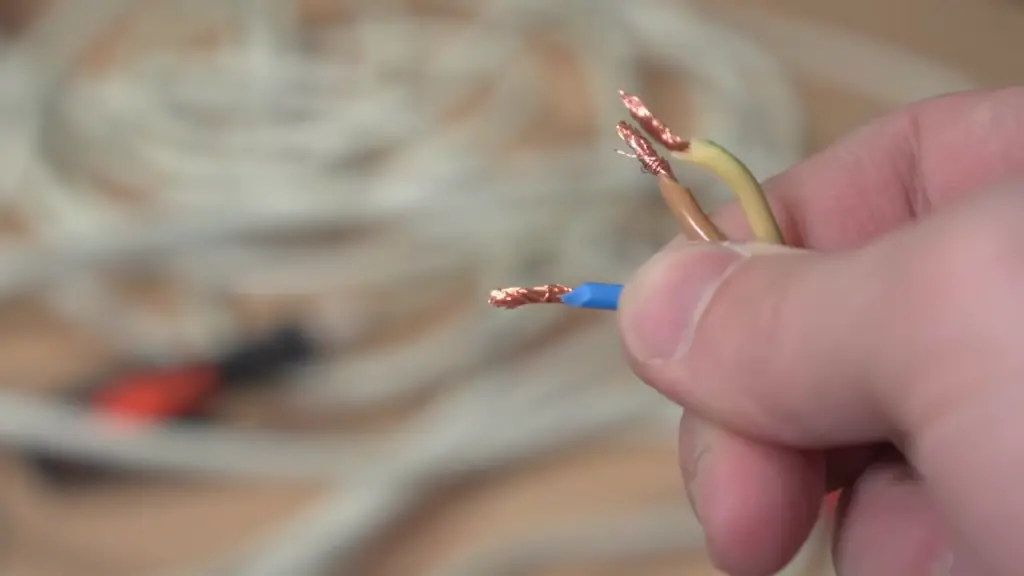
But usually, as specialty contractors, electrical contractors are labeled as C-10 contractors. In order to work as an electrical contractor in California, you must first obtain a valid C-10 contractor license from the California Contractors State License Board (CSLB).
You must have at least four years of work experience as an electrician or equivalent in order to qualify for the C-10 contractor license or hire someone who has the necessary experience.
Besides the C-10 contractor license, you will also need to pass a Business and Law exam in order to obtain your license. This examination ensures that applicants have a basic understanding of business operations and the law as they relate to the contracting business.
As an Electrical Contractor, you will be required to comply with all of the business laws and regulations that apply to your type of business. In addition, you will need to understand the basics of how to run a business, including financial record keeping and marketing.
Provide proof of insurance
Electricians in California are considered to be high-risk professionals. This means that they are more likely than other professionals to be sued or held liable for damages caused by their work. As a result, most electrical contractors are required to carry liability insurance.
Proof of insurance is typically required when bidding on jobs or signing contracts. It is also generally required when applying for business licenses and permits. Failure to provide proof of insurance can result in the denial of a license or permit, and it can also lead to fines and other penalties.
Liability insurance protects electrical contractors from financial losses that may arise from claims of negligence or errors and omissions. The cost of liability insurance varies depending on the size and scope of the business, as well as the location and type of work. However, most electrical contractors can expect to pay several thousand dollars per year for liability insurance.
Some electrical contractors also choose to carry workers’ compensation insurance, which covers medical expenses and lost wages for employees who are injured on the job. Workers’ compensation insurance is not required in all states, but it may be required by some employers.
In addition to liability and workers’ compensation insurance, electrical contractors may also need to carry bonding insurance. Bonding insurance protects the contractor from financial losses that may arise from claims of fraud or dishonesty. Bonding insurance is typically required when bidding on jobs or signing contracts.
Find a licensed contractor
If you decide to work for a corporation, you will need to find an electrical contractor that is licensed by the California Contractors State License Board. Once you find an electrical contractor, you can apply for a position and if hired, start working towards your career goals.
Renew your certifications every three years
No matter what your end goal is, you will need to renew your certs! As we mentioned already, electricians in California must renew their certification every three years. The process is simple and can be done online. Renewal fees are typically around $100. Electricians must also complete continuing education courses to keep their skills up-to-date. [2],[3]
FAQ
Can you do electrical work without a license in California?
The answer to this question is unfortunately, no. In order to perform any electrical work in the state of California, you must have a valid license issued by the California Contractors State License Board (CSLB). This includes both journeyman and contractor licenses.
Performing electrician activities without a license not only endangers yourself, but also those around you. In the state of California, unlicensed work is a misdemeanor offense that can come with a fine or even several months in jail.
Working without a license is illegal and it also voids any insurance coverage you may have in case of an accident. This means that if you are injured while working, or damage someone else’s property, you will be held fully liable.
What is the minimum age you can start seeking an electrician apprenticeship?
You must be at least 18 years old to start an electrician apprenticeship in California. This is an average age requirement among states; some have higher age limits, while others allow apprenticeships for 17-year-olds with parental consent.
What are my job prospects as a licensed electrician in California?
The job prospects for licensed electricians in California are excellent. The state is home to many large industries that require the expertise of electricians, and there is a growing demand for qualified individuals in this field. In addition, the cost of living in California is relatively high, which means that electricians who are able to find work in the state can earn a good salary.
How much does it cost to become an electrician in California?
The cost of becoming an electrician in California will vary depending on the route you take. If you choose to complete an apprenticeship, there is no cost to you as the employer will cover the cost of your training. If you choose to attend a technical school or community college, the cost will range from $1,000-$15,000 depending on the length and location of the program.
Of course you should also take exam and certification fees into account, when piled up, they may as well reach the $1,000+ numbers.
How long does it take to become an electrician?
The amount of time it takes to become an electrician in California can vary depending on your previous experience and education. However, most students complete their training within four years.
If you have no prior experience or education in the field, you will likely need to complete an apprenticeship program lasting four years. Alternatively, you could attend a trade school or community college offering electrician certification programs.
Those with some previous experience or education may be able to complete their training in a shorter time frame. For example, if you have completed a certified electrician program lasting one year or more, you may only need to complete an additional year of apprenticeship training.
Useful Video: California Electrical Certification – Everything You Need To Know To Become a Certified Electrician!
Conclusion
So you want to be an electrician in California. It’s a great decision! As an electrician, you’ll have the chance to work with your hands, solve problems, and help keep the lights on for people all over the state.
The process of becoming an electrician in California is not as complicated as it may seem at first. But there are a number of steps you must take, including completing an electrician apprenticeship or training program and passing a bunch of electrician exams. Fortunately, once you have your license, you will be able to work as an electrician in California without any additional licensure requirements.
Just don’t forget to keep your certifications and continuing education credits up to date, and you’ll be well on your way to a long and successful career as an electrician in California!
References
- https://www.betterteam.com/electrician-job-description
- https://www.servicetitan.com/licensing/electrician/california
- https://www.sjvc.edu/blog/how-to-become-an-electrician-in-california/
- https://www.ftccollege.edu/trade-blog/electrician-school-to-become-certified/
- https://www.dir.ca.gov/dlse/ecu/1a.html








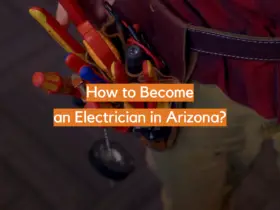

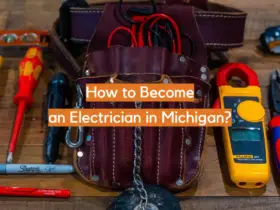
Leave a Reply